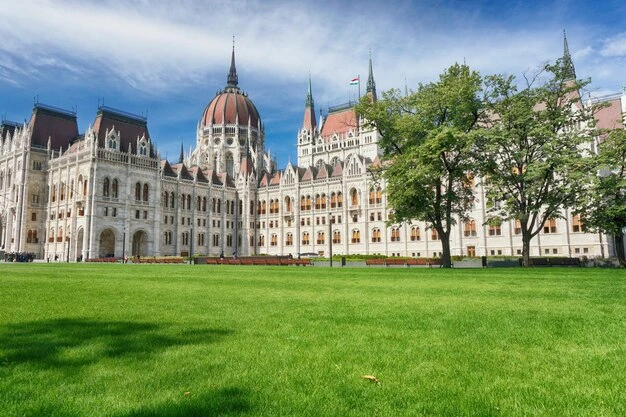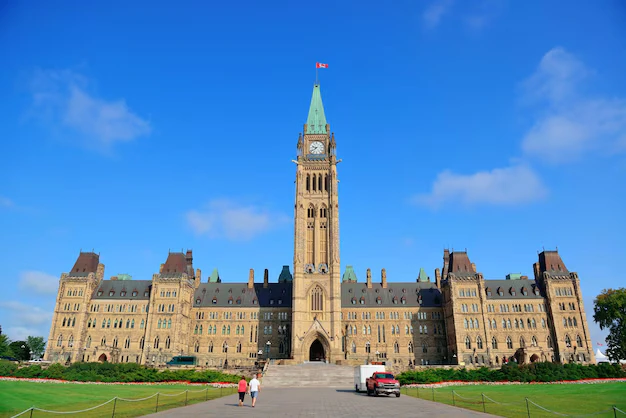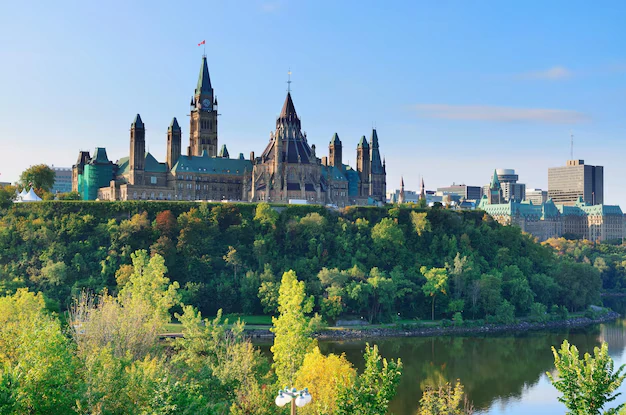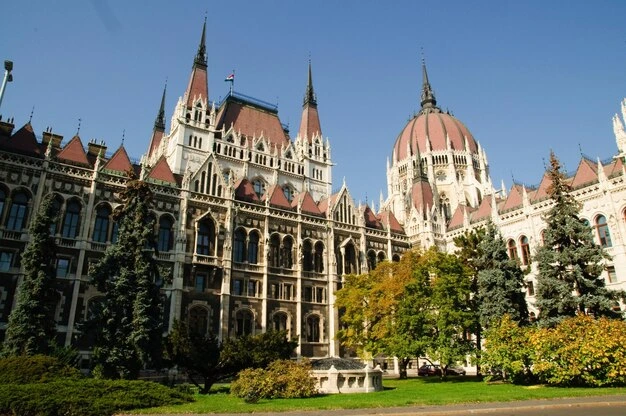Study MBBS in Canada 2025: Admission Process, Eligibility, Tuition Fees, Cost, and for Indian Students
MBBS in Canada has become a premier option for Indian students seeking a globally recognized MBBS Abroad degree in an English-speaking environment with excellent clinical exposure and research opportunities. With NMC-approved medical schools, a structured MD curriculum, access to cutting-edge simulation labs, and streamlined NEET pathways, MBBS in Canada for Indian Students offers strong residency prospects through CaRMS and high pass rates in FMGE/NExT. Although MBBS in Canada Fees are higher than in Eastern Europe—averaging ₹50 lakh–₹1 crore for tuition and living—institutions like University of Toronto, McGill University, and University of British Columbia deliver unparalleled education, competitive MCCQE preparation, and robust campus support for international scholars. This guide covers eligibility, MCAT requirements, visa processes, scholarship options, and how University Insights helps secure seats at the top medical universities in Canada for the 2025–26 intake.
About Canada
MBBS graduates in Canada gain access to excellent career opportunities in healthcare. Medical schools in Canada offer prestigious medical degrees that are internationally recognized. Top medical courses in Canada focus on both practical and theoretical learning, preparing students to excel as physicians and surgeons.
Medical institutions in Canada, including top universities, offer programs equivalent to MBBS, such as MD (Doctor of Medicine). Aspiring students need to meet the eligibility criteria, including high academic scores and clearing exams like MCAT. With globally renowned universities offering top-notch medical education, Canada remains a Favored destination for students pursuing medical careers. Medical degree in Canada is offered by top universities; recognized by Physicians and Surgeons of Canada universities that offer MBBS.
- Degree Structure: The MD program is equivalent to MBBS in other countries, providing a mix of theoretical and clinical training. Students need to complete their undergraduate studies before applying to medical school.
- Eligibility: Indian students must clear both the NEET exam and the Medical College Admission Test (MCAT) to apply for an MD program in Canada.
- Top Institutions: Some of the top medical universities in Canada include the University of Toronto, McGill University, McMaster University, and University of British Columbia.
- Cost: The tuition fees for studying MBBS (MD) in Canada vary between CAD 30,000 to 100,000 per year depending on the university
| Category | Details |
|---|---|
| Capital | Ottawa |
| Official Language | English and French |
| Currency | Canadian Dollar (CAD) |
| Number of Universities (Medical) | 17 medical schools |
| Average Tuition Fees for MBBS | 30 – 60 lakh INR per year |
| Cost of Living in Canada | Approximately 80,000 – 1.2 lakh INR per month |
| Minimum and Maximum Temperature | -30°C (winter) to 35°C (summer) |
| Exchange Rates to INR | 1 CAD = 61 INR (approx.) |
Canada is known for its multicultural society, excellent quality of life, and diverse landscapes that range from snowy mountains to vibrant urban centers. As an international student, you’ll experience a country with a welcoming environment, world-class healthcare, and a strong emphasis on innovation and research in education.
Key points about Canada’s cultural and geographical context:
- Multicultural Society: Canada is home to a vast population of immigrants, making it a culturally rich and diverse country. International students will find communities from all over the world, including a significant number of Indian students.
- Geography: With its vast landmass, Canada offers a variety of climates and natural beauty, from the forests and lakes of Ontario to the coastal regions of British Columbia. This diversity provides a balance of adventure and urban experiences for students.
The Educational System to Study MBBS in Canada 2025
The Canadian education system for medical studies is well-structured and globally recognized for its high standards. Key points to note:
- Degree Structure: Unlike in countries where MBBS is offered as a direct undergraduate program, medical education in Canada follows a different pathway. Students first complete a bachelor’s degree in a relevant field before applying to an MD program.
- Clinical Exposure: During the MD program, students benefit from extensive clinical training and internships, which are crucial for hands-on experience.
- Licensing: Graduates are required to pass the Medical Council of Canada Qualifying Examination (MCCQE) to practice as physicians in Canada
Want To Study in Canada?

Why Study in Canada for MBBS 2025-26?
Canada has long been a popular destination for international students pursuing medical degrees, especially for Indian students. Here’s a breakdown of the major advantages
Advantages of Studying MBBS in Canada for International Students
- Global Recognition: Medical degrees from Canadian universities, such as the Doctor of Medicine (MD), are globally recognized. This opens doors for practicing medicine in numerous countries, not just Canada.
- High Academic Standards: Canadian medical schools are known for their rigorous academic programs that emphasize practical experience and research. This ensures graduates are well-prepared for clinical practice
- Research Opportunities: Top Canadian universities, such as the University of Toronto and McGill University, are renowned for their contributions to medical research. International students can engage in cutting-edge medical research projects during their studies
- Multicultural Environment: Canada’s inclusive and multicultural society ensures that international students, including many from India, feel welcome and supported throughout their studies
- Job Prospects: The demand for medical professionals in Canada is high, with many job opportunities post-graduation. According to projections, thousands of new job vacancies are expected by 2028, making it a promising location for career growth
Top Medical Colleges and Universities in Canada
Canada boasts several prestigious universities offering medical programs. Some of the top medical colleges for MBBS-equivalent (MD) programs include:
- University of Toronto
- McGill University
- University of British Columbia
- McMaster University
- University of Alberta
These institutions offer state-of-the-art facilities, diverse clinical opportunities, and affiliations with leading hospitals, making them prime choices for international students.
MBBS Degree Medicine in Canada vs Other Countries
- Entry Requirements: Unlike many countries where MBBS is pursued directly after high school, in Canada, students need to complete a bachelor’s degree before enrolling in an MD program. This additional step ensures a solid foundation in the sciences
- Program Duration: The MD in Canada typically lasts 3-4 years after undergraduate studies, followed by residency. In contrast, in countries like India, the MBBS program is typically a 5.5-year undergraduate degree
- Clinical Training: The clinical exposure in Canada begins early and is extensive, often integrated with research opportunities. This is on par or superior to many other countries offering medical education
Opportunities for MBBS in Canada for Indian Students
For Indian students, pursuing an MD in Canada offers several benefits:
- NEET Requirement: Indian students must pass NEET and MCAT to be eligible for admission, ensuring they meet both Indian and Canadian medical entrance standards
- Work Opportunities: Post-graduation, Indian students can apply for a Post-Graduation Work Permit (PGWP), which provides an opportunity to gain work experience in Canada. Additionally, there are residency options in collaboration with Canadian hospitals
MBBS in Canada for Indian Students: A Path to Success
With a medical degree from Canada, Indian students not only gain access to global opportunities but also have the option to return to India and practice. MBBS graduates from Canada are recognized by the Medical Council of India (MCI), and many students successfully pass licensing exams like the FMGE or NEXT after completing their MD in Canada
Want To Study in Canada?

Study MBBS in Canada for Indian Students 2025-26
Study MBBS in Canada: Cost, Scholarships, and Support for Indian Students
Pursuing an MBBS (MD) in Canada can be an excellent choice for Indian students due to the high quality of education and global recognition of degrees. However, it can also be expensive. On average, tuition fees for international students range from CAD 14,750 to CAD 91,760 per year (around INR 9 lakhs to 56 lakhs). In addition, living expenses typically range between CAD 10,000 and CAD 20,000 per year (approximately INR 6-12 lakhs), depending on the location and lifestyle.
Scholarships are available to help offset the cost, such as the Lester B. Pearson International Scholarship for students at the University of Toronto or merit-based scholarships offered by universities like McGill, UBC, and others. Additionally, Indian students may qualify for financial aid through private and government-funded scholarships.
Eligibility Criteria for MBBS in Canada for Indian Students
Admission to Canadian medical schools is highly competitive, and Indian students must meet specific eligibility criteria:
- Bachelor’s Degree: Unlike many countries, a bachelor’s degree in a related field (e.g., biology, chemistry) is required before applying to medical school.
- NEET and MCAT: Indian students must pass the NEET exam (for Indian medical schools) and the MCAT (Medical College Admission Test), which is required for admission into Canadian medical programs.
- Language Proficiency: Students need a good score in English language tests like IELTS or TOEFL (minimum 6.5 bands for IELTS or 80 in TOEFL).
Admission Process for Indian Students to Pursue MBBS in Canada
The admission process for MBBS in Canada typically includes the following steps:
- Complete a bachelor’s degree in a relevant field (biology or health sciences).
- Clear the MCAT and NEET exams to demonstrate your readiness for medical studies.
- Submit an application with transcripts, letters of recommendation, and a personal statement. Some schools also require an interview
MBBS Courses in Canada after 12th: A Step-by-Step Guide for Indian Students
Indian students who have completed their 12th grade cannot directly pursue MBBS in Canada. Instead, they can:
- Enroll in a bachelor’s program such as BSc Medicine, Bachelor of Kinesiology, or Bachelor of Nursing.
- After completing the undergraduate degree, they can apply to an MD program, which is equivalent to MBBS in Canada. This pathway ensures students build a strong foundation in health sciences before entering medical school.
Want To Study in Canada?

Admission Process for Studying MBBS in Canada 2025-26
Eligibility Criteria and Required Documents for MBBS in Canada After 12th
To pursue an MBBS (MD) degree in Canada, Indian students need to meet several criteria and provide specific documentation. The primary eligibility requirements include:
- Bachelor’s Degree: A bachelor’s degree in a relevant field (like biology or health sciences) is mandatory, as Canadian medical schools do not offer direct MBBS programs after 12th grade. This ensures students have a strong foundation in sciences
- NEET and MCAT Exams: Indian students must qualify in both the National Eligibility cum Entrance Test (NEET) and the Medical College Admission Test (MCAT)
- English Proficiency: A good score in English proficiency tests, such as IELTS (minimum 6.5 bands) or TOEFL (minimum 80), is required
Required Documents for MBBS application in Canada:
- Academic Transcripts (10th, 12th, and bachelor’s degree)
- English Proficiency Scores
- Letters of Recommendation (usually two)
- Statement of Purpose (SOP)
- Updated Resume
- Passport and Passport-size Photographs.
Admission Process for MBBS in Canada for International Students
The admission process for MBBS in Canada involves several steps:
- Bachelor’s Degree Completion: Students must first complete an undergraduate program.
- Entrance Exams: Students must clear the MCAT and NEET exams.
- University Applications: Apply directly through the university portals or through the Ontario Medical School Application Service (OMSAS) for Ontario-based universities. Applications are generally open from September to November.
- Supporting Documents: Include transcripts, letters of recommendation, a personal statement, and test scores during the application.
Visa Requirements for MBBS Colleges in Canada for Indian Students
After securing admission to a Canadian university, Indian students must apply for a study permit (student visa). The essential visa requirements include:
- Letter of Acceptance from the university.
- Proof of Financial Support showing you can cover tuition and living expenses.
- Medical Examination and Biometric Information.
- Valid Passport with at least 18 months of validity.
Admission in MBBS in Canada: Deadlines and Application Steps
The admission process usually follows this timeline:
- Application Opening: Begins in September, with deadlines between October and November for most universities.
- MCAT and NEET Scores: Ensure these scores are available at the time of application.
- Submission of Documents: Complete submission of academic records, SOP, recommendation letters, and test scores by the deadline.
Want To Study in Canada?

MBBS in Canada Fees Structure and Costs to Study MBBS in Canada 2025-26
Canada is a popular destination for pursuing a medical degree due to its high academic standards and global recognition. However, studying medicine here can be relatively expensive, especially for international students, including those from India. Here’s a detailed breakdown of the costs:
Tuition Fees for MBBS in Canada
The tuition fees for MBBS in Canada vary depending on the university and location. Below are some of the top universities and their respective annual tuition fees for international students:
- University of Toronto: CAD 91,760 (~INR 56.63 lakhs)
- McMaster University: CAD 96,123 (~INR 59.32 lakhs)
- McGill University: CAD 89,987 (~INR 55.54 lakhs)
- University of Ottawa: CAD 43,335 (~INR 26.74 lakhs)
- Memorial University of Newfoundland: CAD 30,000 (~INR 18.51 lakhs)
Cost of Studying MBBS in Canada for International Students
The cost of living in Canada adds significantly to the total expense of pursuing an MBBS degree. On average, international students spend around CAD 20,000 annually on living expenses, which includes accommodation, food, transport, books, and other essentials
Living expenses breakdown (monthly average):
- Accommodation: CAD 550–950 (~INR 33,000–55,000)
- Food: CAD 250 (~INR 15,000)
- Transport: CAD 30–65 (~INR 2,000–4,000)
- Books and materials (yearly): Up to CAD 1,665 (~INR 1 lakh)
Breakdown of MBBS Fees in Canada for Indian Students
The total cost to pursue MBBS in Canada, including tuition fees and living expenses, can range between CAD 60,000 to 120,000 annually, depending on the university and the student’s lifestyle. For Indian students, this translates to INR 36–73 lakhs per year
Hidden Costs and Financial Planning for MBBS in Canada
Beyond tuition and living costs, students should consider hidden costs such as:
- Health insurance: CAD 550-915 per month (~INR 33,000–55,000)
- Visa and travel costs: Visa fees and flight expenses
- Miscellaneous expenses: Textbooks, medical supplies, and other academic necessities.
To manage these costs, Indian students can explore scholarships like the Vanier Canada Graduate Scholarship and the Lester B. Pearson International Scholarship, which help reduce financial burdens
MBBS Fees in Canada for International Students
The fees for studying MBBS (equivalent to MD in Canada) vary widely depending on the university and the location. Here are the average annual tuition fees for international students at some of the top medical universities in Canada:
- University of Toronto: CAD 91,760 (~INR 56.63 lakhs)
- McMaster University: CAD 96,123 (~INR 59.32 lakhs)
- McGill University: CAD 89,987 (~INR 55.54 lakhs)
- University of Ottawa: CAD 43,335 (~INR 26.74 lakhs)
- Memorial University of Newfoundland: CAD 30,000 (~INR 18.51 lakhs)
On average, the annual tuition fees for MBBS in Canada for international students range from CAD 30,000 to 96,000, depending on the institution and the student’s specialization.
Additionally, students should budget for living expenses, health insurance, and miscellaneous costs, which can add CAD 20,000 or more annually. Financial aid and scholarships like the Vanier Canada Graduate Scholarship and university-specific scholarships are available for eligible students
Want To Study in Canada?

Top Medical Universities to Study MBBS in Canada 2025-26
Canada is home to some of the world’s best medical universities, making it a top destination for international students looking to pursue medicine. Canadian medical programs are highly competitive and are recognized globally for their high-quality education, advanced research facilities, and excellent career opportunities for graduates. Here’s an overview of some of the best institutions offering medical degrees.
Best Medical Universities in Canada
| Name of University | Location | Annual Tuition Fee (In CAD) | Annual Tuition Fee (In INR) |
|---|---|---|---|
| University of British Columbia | Vancouver, Canada | 22,505 CAD | 13,72,805 INR |
| Queen’s University | Kingston, Canada | 6,900 CAD | 429,900 INR |
| University of Toronto | Toronto, Canada | 91,770 CAD | 55,97,970 INR |
| McGill University | Montreal, Canada | 90,000 CAD | 54,90,000 INR |
| Memorial University of Newfoundland | Heidelberg, Canada | 30,000 CAD | 18,30,000 INR |
| University of Sherbrooke | Sherbrooke, Canada | 14,400 CAD | 878,400 INR |
| McMaster University | Hamilton, Canada | 96,000 CAD | 58,56,000 INR |
| University of Ottawa | Ottawa, Canada | 44,000 CAD | 26,84,000 INR |
| University of Alberta | Edmonton, Canada | 15,877 CAD | 968,497 INR |
For Indian students looking to pursue MBBS in Canada, these universities offer a variety of programs tailored to international needs:
- University of Toronto
- McGill University
- McMaster University
- University of Alberta
- Queen’s University
Universities in Canada Offering MBBS Degrees
While there is no direct “MBBS” in Canada, the equivalent is the Doctor of Medicine (MD) program. Many of the top universities like University of Toronto, McGill University, and University of British Columbia offer these MD programs, designed to meet the educational standards required to become a licensed physician
Want To Study in Canada?

Advantages of Studying MBBS in Canada 2025-26
Canada remains one of the top destinations for international students pursuing medical education due to its high standards, excellent career opportunities, and welcoming environment. Here’s a detailed look at the benefits of studying medicine in Canada:
Why Pursue MBBS in Canada?
Studying medicine in Canada provides access to globally recognized degrees. The Canadian healthcare system is known for its high standards, and medical programs in Canada emphasize both theoretical knowledge and practical skills. Additionally, Canadian universities rank among the top globally, particularly in medicine and health sciences, offering students exposure to cutting-edge medical technologies and research
Benefits for International Students Studying MBBS in Canada
- Work Opportunities: International medical students can work both on and off-campus while studying, which helps them gain valuable experience and earn income. Upon graduation, students are eligible for post-graduation work permits, which enhance employability and open doors to permanent residency.
- Multicultural and Safe Environment: Canada is known for its welcoming attitude towards international students, providing a safe and peaceful environment with low crime rates, which allows students to focus on their studies.
- Access to Scholarships: Many Canadian universities offer scholarships and financial aid to help international students manage the high cost of tuition and living expenses.
Advantages of Studying MBBS in Canada vs Other Countries
- Quality of Education: Canadian medical schools are highly ranked for their academic rigor and focus on research, placing them on par with top schools in the US and the UK. This gives Canadian MBBS graduates an edge globally.
- Practical Training: The integration of hands-on clinical experience through rotations in hospitals provides students with real-world exposure to patient care, which is often a distinct advantage compared to other countries.
MBBS in Canada: Career Opportunities for Graduates
After completing MBBS in Canada, graduates have numerous career paths, including becoming general practitioners, specialists, or even researchers. Some popular specialties include neurology, cardiology, and emergency medicine, with salaries ranging from CAD 120,000 to over CAD 300,000 annually depending on specialization and experience.. Additionally, Canada’s healthcare system is currently experiencing a demand for physicians, which increases job prospects for medical graduates.
Canada After MBBS: Opportunities for Further Studies
After completing their MBBS (or equivalent MD), students can pursue further studies in various medical specialties through residency programs, which can last between two to seven years depending on the specialization. Canadian universities offer residency positions to international students, though competition is strong. Graduates also have the opportunity to engage in medical research or pursue PhDs in fields such as medical sciences, public health, or epidemiology.
Want To Study in Canada?

Course Details and Curriculum of Studying MBBS in Canada 2025-26
Studying medicine in Canada, equivalent to pursuing an MBBS, involves a rigorous academic program that is highly respected worldwide. Below is a detailed look at the curriculum, duration, and support services available for MBBS students in Canada.
MBBS Curriculum and Structure in Canada
In Canada, the MBBS is offered as a Doctor of Medicine (MD) program. This program generally spans 3-4 years, building on a prerequisite undergraduate degree, often in sciences such as biology or chemistry. The curriculum is divided into pre-clinical and clinical phases:
- Pre-clinical phase (Years 1-2): Focuses on foundational medical sciences, including anatomy, biochemistry, pharmacology, and physiology.
- Clinical phase (Years 3-4): Students rotate through various medical specialties like internal medicine, surgery, pediatrics, and psychiatry, gaining hands-on experience in hospital settings
Duration of MBBS in Canada for International Students
The total duration for medical studies in Canada, including residency, can range between 7 to 10 years:
- MD Program: 3 to 4 years.
- Residency: 2 to 7 years, depending on the chosen specialization.
Academic Support Services for MBBS Students in Canada
Canadian medical schools provide extensive academic support, including tutoring services, career counseling, and access to peer mentorship programs. Many universities also offer workshops on clinical skills, time management, and mental health support to help students thrive in the demanding environment of medical education
Research Facilities for Medical Students in Canada
Canada is renowned for its research-focused medical programs. Universities such as McGill University and the University of Toronto provide students with access to cutting-edge research laboratories. Students are encouraged to participate in research projects in fields like neuroscience, genetics, and oncology, often in collaboration with globally recognized researchers.
Use of Technology in Medical Courses in Canada
Canadian medical schools heavily integrate technology into the learning experience. This includes simulated patient encounters using high-fidelity mannequins, virtual reality for surgery practice, and access to electronic medical records during clinical rotations. The use of such technologies helps prepare students for real-world medical practice.
Want To Study in Canada?

Studying MBBS in Canada Syllabus
Canada’s medical programs offer comprehensive training and preparation for a medical career. Here’s a breakdown of the syllabus, training, and other critical aspects of studying medicine (equivalent to MBBS) in Canada.
Key Subjects in MBBS Courses in Canada
MBBS programs in Canada follow a structured syllabus that encompasses pre-clinical, para-clinical, and clinical phases:
Pre-Clinical Phase (Years 1-2): This phase focuses on basic medical sciences, such as:
- Anatomy
- Biochemistry
- Physiology
- Pharmacology
- Pathology
Para-Clinical Phase (Years 3-5): The focus shifts to applied medical sciences and clinical training, which includes:
- Microbiology
- Forensic Medicine
- Community Medicine
- Clinical Postings in wards and outpatient departments (OPDs)
MBBS in Canada Syllabus for 2025
Medical education in Canada typically spans 4-6 years, followed by residency. The subjects in each semester emphasize both theoretical knowledge and practical skills. Here’s a typical division:
- Year 1-2 (Pre-clinical): Students learn foundational subjects such as human anatomy, biochemistry, and medical ethics.
- Year 3-4 (Clinical rotations): Focus is on hands-on experience in major medical fields like surgery, pediatrics, internal medicine, and psychiatry.
Internship and Practical Training in Canada
After completing the MD program, students must undergo an internship as part of the medical curriculum. This typically involves a mandatory one-year rotational internship, where students work in different departments like surgery, medicine, and pediatrics, gaining practical experience.
Licensing Exams After MBBS in Canada
To practice as a licensed physician in Canada, graduates must pass the Medical Council of Canada Qualifying Examination (MCCQE), along with completing the National Assessment Collaboration (NAC). Following the exams, graduates undergo a residency program, which lasts between 2 to 7 years, depending on the specialization.
Ethical Practices and Environmental Sustainability in Canadian Medical Education
Canada’s medical education also emphasizes ethical medical practices and environmental sustainability. This involves training students on responsible medical conduct, patient privacy, and the broader role of medicine in promoting sustainability in healthcare systems.
Want To Study in Canada?

Opportunities and Career Prospects After Studying MBBS in Canada 2025-26
Pursuing an MBBS (or MD) degree in Canada opens up numerous career opportunities and pathways for further studies, both within Canada and internationally. Below is an in-depth look at the possibilities for MBBS graduates in 2025-26.
Career Opportunities After MBBS in Canada
MBBS graduates from Canadian medical institutions have a wide range of career paths, including:
- General Practitioner (GP): Most MBBS graduates start their careers as general practitioners, where they diagnose and treat a variety of health conditions. Salaries for GPs in Canada range from CAD 100,000 to 250,000 annually.
- Specialists: Specializing in fields like cardiology, neurology, or surgery requires further training but offers higher salary potential. For example, a cardiologist or neurosurgeon can earn between CAD 150,000 and 500,000 per year.
- Medical Research: Graduates interested in academic medicine can pursue research careers in medical institutes or universities, with salaries ranging from CAD 70,000 to 150,000.
- Teaching and Academia: For those inclined toward education, teaching medical students and residents is another fulfilling option, with compensation ranging from CAD 100,000 to 200,000 per year.
Higher Studies and Specializations in Canada for MBBS Graduates
Upon completing the MBBS, students can opt for specialization programs through residencies in areas such as:
- Family Medicine: A three-year residency required for general practice.
- Surgery, Pediatrics, or Oncology: These require five or more years of residency. Graduates can further specialize with fellowships in fields like cardiac surgery or neurology.Graduates also have the opportunity to pursue Master’s in Public Health (MPH) or Health Administration (MHA) for careers in healthcare management or public health
Licensing and Practice Requirements in Canada After MBBS
To practice medicine in Canada, graduates must:
- Pass the Medical Council of Canada Qualifying Examination (MCCQE) Part 1.
- Complete a residency in their chosen specialization.
- Obtain licensure from the Medical Council of Canada (MCC) and receive a Licentiate of the Medical Council of Canada (LMCC)
For international students, obtaining permanent residency (PR) is often necessary to secure a residency position in Canada
Part-Time Work Opportunities for MBBS Students in Canada
While studying, international students are permitted to work up to 20 hours per week during the academic year and full-time during breaks. Some universities also offer work-study programs that provide part-time on-campus employment, allowing students to gain relevant work experience.
Alumni Success Stories of MBBS Graduates from Canada
Many MBBS graduates from Canada have gone on to become successful physicians, researchers, and healthcare leaders. Alumni have advanced in fields such as emergency medicine, neurosurgery, and public health policy, and some have established their own medical practices in underserved regions, benefiting from Canada’s loan reduction programs designed to encourage physicians to work in rural areas.
Want To Study in Canada?

Studying MBBS in Canada vs MBBS in India 2025-26
MBBS in Canada for Indian Students: A Comparison with MBBS in India
When comparing MBBS in Canada and India, the biggest difference is the structure and duration of the programs. In Canada, students typically complete a Bachelor’s degree (3-4 years) in a related field (like biology) before enrolling in the MD program, which is the equivalent of an MBBS and lasts 4 years. In contrast, Indian MBBS programs last 5.5 years, which includes one year of internship.
Moreover, the admission process in Canada is more rigorous, requiring international students to take the MCAT (Medical College Admission Test) and demonstrate English proficiency via exams like IELTS or TOEFL. In India, admission is largely based on NEET (National Eligibility cum Entrance Test) scores.
Post-Graduation Opportunities After MBBS in Canada vs India
Canadian MBBS graduates often have access to post-graduation work permits, allowing them to gain experience in Canada through residency programs, which can last between 2-7 years depending on the specialization. This can be followed by permanent residency or citizenship. Indian students with an MBBS degree may also pursue further studies or residency in Canada, but must pass additional licensing exams like the MCCQE.
In India, post-graduation opportunities typically involve enrolling in MD/MS or DNB programs, with students often competing in the NEET PG exam. Graduates from Indian institutions can also pursue opportunities abroad, but may need to pass equivalency exams in their destination country.
Recognition of MBBS Degrees in Canada and India
Degrees from both Canada and India are globally recognized, but Canadian medical degrees tend to hold more weight in terms of international mobility, especially for those looking to practice in the US, UK, or Europe. Graduates from Canadian medical schools do not need to take the MCI (Medical Council of India) screening test to practice in India, whereas Indian MBBS graduates need to pass exams like the USMLE or PLAB to practice abroad
MBBS in Canada vs India: Advantages for Indian Students
Studying MBBS in Canada offers several advantages:
- Global Recognition: Canadian medical degrees are highly respected internationally, increasing job opportunities worldwide.
- Research Opportunities: Canadian medical schools emphasize research, giving students hands-on experience in cutting-edge medical advancements.
- High Salaries: Doctors in Canada, depending on the specialization, can earn between CAD 150,000 to 300,000 annually, which is generally higher than in India
On the other hand, MBBS in India is more affordable and takes less time to complete, making it a more feasible option for students with budget constraints. Indian MBBS programs are also better suited for those planning to practice in India immediately after graduation.
Want To Study in Canada?

Studying MBBS in Canada vs MBBS in Other Countries 2025-26
Why Canada and Not Other Countries for MBBS
Canada is an attractive destination for medical studies due to its global recognition of degrees, excellent healthcare infrastructure, and access to advanced medical research. Canadian MBBS programs (MD) emphasize practical training, allowing students to work in renowned hospitals and research centers during their education. In comparison, countries like India and Eastern Europe might offer shorter, more affordable programs but often lack the global reputation and research focus that Canadian institutions provide.
Moreover, Canada offers post-graduation work permits, making it easier for graduates to stay, complete residencies, and even apply for permanent residency.. Canada’s focus on multiculturalism also ensures a welcoming environment for many Indian and other international students.
Comparison of MBBS in Canada with Other MBBS Abroad Options
- Cost: MBBS programs in Canada are more expensive than those in countries like Russia, Ukraine, or China, where tuition fees are significantly lower. However, Canadian universities offer merit-based scholarships and financial aid to international students, helping offset the higher costs.
- Curriculum: The Canadian MBBS curriculum is research-oriented, combining clinical practice with cutting-edge technological advancements. In contrast, many other countries offer more traditional medical education, without the emphasis on research or technological integration.
- Residency Opportunities: Graduates from Canadian medical schools are often more competitive for residency placements within Canada, the US, and Europe, whereas MBBS graduates from other countries might face challenges in securing international residency opportunities.
Want To Study in Canada?

Scholarships and Financial Aids to Study MBBS in Canada 2025-26
Scholarships for MBBS in Canada
Several scholarships are available for international students pursuing an MBBS in Canada:
- Lester B. Pearson International Scholarship: Offered by the University of Toronto, this scholarship covers tuition and other expenses.
- Education Future International Scholarship: Awarding between CAD 3,600 to CAD 17,000, this scholarship is based on merit and financial need.
- BrokerFish International Student Scholarship: Provides CAD 1,300 for students studying health-related programs.
Financial Aids for Indian Students to Study MBBS in Canada
In addition to scholarships, Indian students can explore student loans from Indian banks such as HDFC Credila and Axis Bank, which offer educational loans for studying abroad. Additionally, many Canadian universities offer on-campus work-study programs, allowing students to work part-time while studying to offset living costs.
How to Apply for Scholarships and Financial Aid for MBBS in Canada
To apply for scholarships and financial aid, students need to:
- Research available scholarships: Visit the websites of universities offering the programs to learn about scholarship opportunities.
- Prepare necessary documents: This includes letters of recommendation, essays, transcripts, and proof of English proficiency such as IELTS or TOEFL scores.
- Submit applications early: Scholarship deadlines vary, so it’s crucial to check application deadlines on university portals.
Want To Study in Canada?

MBBS Options for Indian Students Other Than Studying MBBS in Canada 2025
MBBS Abroad: Popular Countries Other Than Canada for Indian Students
For Indian students looking to pursue MBBS abroad, several countries offer excellent education at a more affordable cost compared to Canada. Some of the most popular destinations include:
- Russia: Known for its affordability, with annual tuition fees ranging from INR 2.5 to 4.5 lakhs, Russia offers medical programs in English with globally recognized degrees.
- Philippines: Offering MBBS programs with American-style education, the Philippines is a cost-effective option, with fees between INR 25 to 40 lakhs for the entire course.
- Ukraine: Though currently less favorable due to political instability, Ukraine previously offered affordable MBBS programs, with fees ranging from INR 20 to 38 lakhs.
- Kyrgyzstan: One of the most affordable options, with fees as low as INR 12 to 18 lakhs for the entire program.
- China: Offering modern infrastructure and MCI-recognized degrees, China has fees between INR 20 to 35 lakhs for the full MBBS course
Feasible Options for Indian Students to Pursue MBBS Abroad
For students looking for a balance of cost, quality, and opportunities, Russia, Kyrgyzstan, and the Philippines stand out as feasible options. These countries offer lower tuition fees and a higher return on investment (ROI) as compared to private medical colleges in India. Furthermore, the infrastructure and global recognition of degrees in countries like China and the Philippines provide students with strong career opportunities.
Pros and Cons of Studying MBBS in Countries Other Than Canada
Pros:
- Lower Costs: Countries like Russia and Kyrgyzstan offer significantly lower tuition fees compared to Canadian or US universities.
- Global Recognition: Degrees from countries like Russia and the Philippines are globally recognized, allowing graduates to practice in multiple countries.
- No Entrance Exams: Many of these countries allow direct admissions without entrance exams like NEET for Indian students.
Cons:
- Cultural and Language Barriers: In countries like Russia and China, language can be a barrier, and students might need to learn local languages for clinical practice.
- Post-Graduation Challenges: While the degrees are recognized, students may need to pass licensing exams (e.g., FMGE in India) to practice in certain countries.
- Political Instability: Countries like Ukraine have recently become unstable, affecting the safety and continuity of education.
Want To Study in Canada?

Living Costs While You Study MBBS in Canada 2025-26
Lifestyle and Culture While Studying MBBS in Canada
Canada offers a vibrant and diverse cultural experience for international students. Medical students are exposed to a multicultural environment, with a strong emphasis on inclusion and diversity. Cities like Toronto, Vancouver, and Montreal have active student communities with various festivals, restaurants, and outdoor activities. Students can explore museums, art galleries, and natural parks, enriching their educational experience.
Safety and Accommodation for International Students in Canada
Safety is a key priority for international students in Canada. Universities often provide secure on-campus housing options, but students can also choose off-campus accommodations, such as shared apartments or homestays. On-campus housing costs range from CAD 8,000 to 15,000 annually, while renting off-campus can vary between CAD 600 to 2,500 per month, depending on the city. Sharing accommodations is a cost-effective way to manage expenses.
Comparative Living Costs for Medical Students in Canada and Other Countries
Living costs in Canada are relatively high compared to countries like Russia, China, or Kyrgyzstan but remain more affordable than studying in the US or the UK. On average, students spend around CAD 1,000 to 2,500 monthly on accommodation, food, and transportation. In contrast, the cost of living in Russia or Kyrgyzstan can be significantly lower, with students paying around INR 2-4 lakhs annually.
Language and Communication Support for Indian Students in Canada
English and French are the primary languages of communication in Canada. Most universities offer language support programs to help international students adapt, including English as a Second Language (ESL) courses and writing centers. Some provinces, such as Quebec, may require proficiency in French, but universities generally support language learning.
Student Clubs and Extracurricular Activities in Canada
Canadian universities host numerous student clubs and extracurricular activities, ranging from medical societies to sports teams and cultural organizations. These activities allow students to build networks, gain leadership experience, and maintain a healthy work-life balance. Participation in extracurriculars is highly encouraged, as it fosters a sense of community and improves overall student well-being.
Want To Study in Canada?

Health and Safety While Studying MBBS in Canada
Healthcare Facilities for International Students in Canada
International students studying MBBS in Canada are required to have health insurance. Some provinces, like British Columbia and Alberta, offer public healthcare coverage for students, while others require the purchase of private insurance, costing between CAD 600 to 1,000 annually. Students can access a wide range of healthcare services through university clinics and nearby hospitals.
Health Insurance and Vaccination Requirements for MBBS Students in Canada
International students must have health insurance throughout their studies. Vaccination requirements vary by university but generally include immunizations against measles, mumps, rubella (MMR), hepatitis B, and influenza. Students should consult their university’s health services to ensure they meet all medical and vaccination requirements.
Safety Tips for International Students Pursuing MBBS in Canada
Canada is known for being a safe country, but students should remain cautious, particularly in urban areas. It is advisable to:
- Avoid isolated areas at night
- Stay connected with fellow students
- Use campus security services if needed
- Familiarize themselves with local emergency contacts.
Mental Health Services and Counseling for MBBS Students in Canada
Canadian universities provide extensive mental health services, including counseling and therapy, to support students’ mental well-being. Medical programs can be demanding, and universities offer both individual counseling and peer support groups to help students manage stress and maintain a healthy work-life balance.
Want To Study in Canada?

Financial Planning to Study MBBS in Canada
Pursuing an MBBS degree in Canada requires thorough financial planning due to the relatively high tuition fees and living expenses. Below is a detailed breakdown of the costs, scholarships, and financial aid opportunities for international students, especially Indian students.
Tuition Fees and Costs of Pursuing an MBBS in Canada
The tuition fees for MBBS in Canada vary significantly across universities, ranging from CAD 20,000 to CAD 100,000 annually. For instance, the University of Toronto charges approximately CAD 91,760 per year (~INR 56.63 lakhs), while more affordable options like Memorial University of Newfoundland have fees around CAD 30,000 (~INR 18.51 lakhs). These costs cover only tuition, and additional expenses for books, materials, and administrative fees may apply.
Living Expenses in Canada
Apart from tuition, international students should account for living expenses, which vary depending on the city. The average cost of living for international students, including accommodation, food, and transport, ranges between CAD 15,000 to 20,000 per year (~INR 9 to 12 lakhs). Major cities like Toronto and Vancouver tend to have higher living costs, whereas smaller cities such as Quebec or Ottawa are more affordable.
Breakdown of Monthly Living Costs:
- Accommodation: CAD 600–2,500 (~INR 36,000–1.5 lakhs) depending on whether students opt for on-campus or off-campus housing.
- Food: CAD 250–500 (~INR 15,000–30,000).
- Transport: CAD 30–150 (~INR 2,000–9,000).
Scholarships and Financial Aid
Several scholarships are available to help international students manage the financial burden of studying in Canada:
- Lester B. Pearson International Scholarship: Covers tuition, books, and residence costs for students at the University of Toronto.
- Vanier Canada Graduate Scholarships: Offers financial support for students in graduate medical programs, providing up to CAD 50,000 annually.
- Education Future International Scholarship: Grants awards ranging from CAD 3,600 to CAD 17,000 to students based on merit.
Part-Time Work Opportunities
International students can work part-time (up to 20 hours per week) during the academic year and full-time during breaks. This provides an opportunity to earn extra income to cover living expenses. On-campus work programs also offer positions to medical students, contributing to both financial support and career development.
Health Insurance and Other Hidden Costs
International students are required to have health insurance, which may be covered by public healthcare in certain provinces (e.g., British Columbia, Alberta) or through private insurance. This can range from CAD 600 to 1,000 annually. Additional costs include books, materials, and personal expenses, often totaling around CAD 2,500 per year.
Want To Study in Canada?

Frequently Asked Questions for Studying MBBS in Canada 2025-26
What is the duration of the MBBS program in Canada?
The equivalent of an MBBS in Canada is the Doctor of Medicine (MD) program, which typically lasts between 3 to 4 years. However, students must first complete a pre-medical bachelor’s degree, usually taking another 3 to 4 years. After completing both, the total duration could extend to 7-8 years including undergraduate studies
How can I get admission into an MBBS program in Canada?
To get admission into an MD program in Canada, applicants need to:
- Complete a pre-medical degree in a relevant field like biology or chemistry.
- Take and pass the Medical College Admission Test (MCAT).
- Indian students must also clear the NEET exam for eligibility.
- Submit an application directly to the medical school or through provincial services like the Ontario Medical School Application Service (OMSAS)
What is the admission process for MBBS in Canada?
The admission process typically includes the following steps:
- Complete a bachelor’s degree in a relevant field.
- Take the MCAT and submit the score.
- Submit transcripts, letters of recommendation, a personal statement, and proof of English language proficiency (like IELTS or TOEFL).
- Attend an interview if required by the university
What is the MBBS fee structure in Canada for 2025?
The tuition fees for MBBS programs in Canada vary by university, but on average, international students can expect to pay between CAD 30,000 to CAD 100,000 per year. For Indian students, this translates to roughly INR 16 to 50 lakh per year depending on the institution
How much does it cost to study MBBS in Canada?
The overall cost includes both tuition fees and living expenses. The tuition fees range from CAD 30,000 to CAD 100,000 annually, and students should budget an additional CAD 10,000 to CAD 20,000 per year for living costs
What is the syllabus for MBBS in Canada in 2025?
The MBBS (MD) syllabus in Canada is divided into two main parts:
- Pre-clinical studies, which focus on foundational subjects like anatomy, physiology, biochemistry, and medical ethics.
- Clinical rotations, where students get hands-on experience in hospitals across various specialties such as surgery, internal medicine, pediatrics, and psychiatry
Which are the top medical colleges in Canada?
Some of the top-ranked medical colleges in Canada include:
- University of Toronto
- McGill University
- McMaster University
- University of British Columbia
- University of Alberta
These universities are renowned for their world-class medical education, research opportunities, and clinical training
What is the process to study medicine in Canada as an international student?
To study medicine in Canada, international students usually need to complete a bachelor’s degree in a related field (like biology or health sciences), followed by an application to an MD program, the equivalent of MBBS. The admission process requires passing the MCAT (Medical College Admission Test) and meeting English language proficiency standards (such as IELTS or TOEFL scores). Additionally, students may need to qualify for NEET if they plan to return to India to practice.
Quick Info
- Number of Universities
- Over 20 medical universities
- Recognition
- Recognized by WHO, NMC FAIMER
- Eligibility
- Minimum 50% marks in PCB (Physics, Chemistry, Biology) in class 12th for general category; 40% for reserved category
- Course Duration
- 5 + 1 year internship
- Total Average Tuition Fees
- Approximately ₹15,00,000 - ₹25,00,000 lacs
- NEET
- Yes, NEET qualification is mandatory
- Intake
- September and January
- Medium of Teaching
- English Medium of instruction
Admission Queries
Read the Experiences of Students after taking University Insight's Services
These are grounded in real-life student experiences using University Insights to further their academic aspirations and overseas travel plans. Come forward and start your own amazing journey.These are grounded on real student experiences using University Insights to further their academic aspirations and international education goals. Approach and start your own amazing journey.
Ananya
Canada
Sandeep
Canada
Fatima
Canada
Ramesh
Canada
Ayesha
Canada
Zain
Canada
Shruti
Canada
Ali
Canada
Neha
Canada
Karan
Canada


